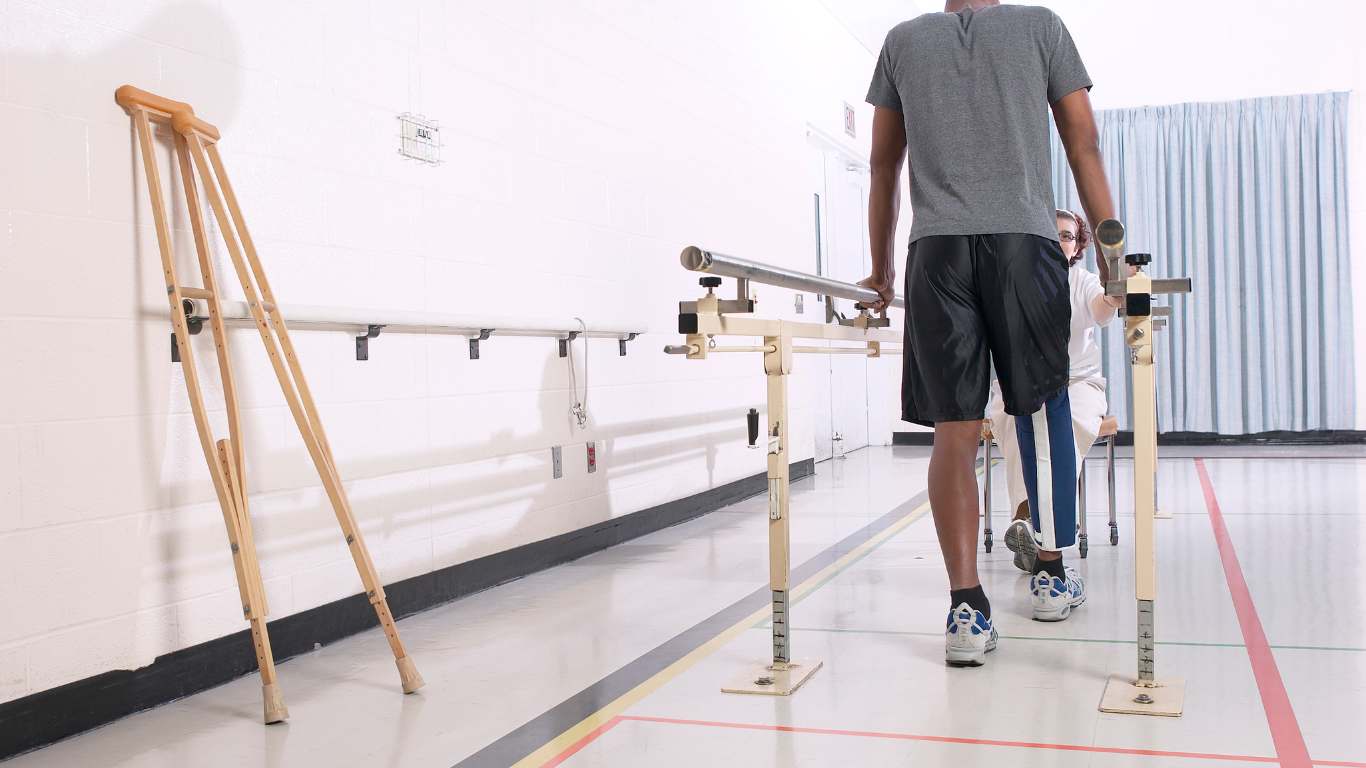Occupational therapy (OT) plays a vital role in supporting individuals with mental health challenges as they work towards recovery and reintegration into their daily lives and communities. Occupational therapists (OTs) work with people of all ages to promote independence, well-being, and meaningful engagement in everyday activities. For individuals dealing with mental health issues, this support can be transformative, fostering improvements in self-care, functional abilities, and overall quality of life. This blog will explore how OTs contribute to mental health recovery by focusing on three key areas: self-care, daily functioning, and community reintegration.

Promoting Self-Care and Routine
One of the main challenges individuals with mental health conditions face is maintaining consistent self-care routines. Whether it’s managing personal hygiene, nutrition, sleep, or overall physical health, mental health struggles can make these tasks seem overwhelming. Occupational therapy emphasises the importance of developing and maintaining these self-care routines, providing structure and consistency in the recovery process.
OTs help individuals identify barriers to self-care and collaborate on strategies to overcome these obstacles. For example, someone with depression may struggle to find the energy or motivation to perform daily hygiene tasks. An occupational therapist may work with this individual to break these tasks down into smaller, more manageable steps and incorporate them into a daily schedule that feels achievable. By building routines that prioritise self-care, individuals can begin to feel a sense of accomplishment and control, which is crucial for mental health recovery.
In addition to practical strategies, OTs also focus on helping individuals develop the mental resilience needed to sustain these routines. This process may involve teaching relaxation techniques, mindfulness practices, or problem-solving strategies that promote mental wellness. In doing so, OTs empower individuals to care for themselves in ways that support both their physical and emotional well-being.

Improving Daily Function and Independence
Occupational therapy also addresses challenges in daily function, including skills related to work, school, and home life. For many individuals with mental health conditions, the ability to complete basic tasks, manage time effectively, or fulfil responsibilities at work or school may be diminished. These impairments can lead to feelings of frustration, helplessness, and decreased self-worth.
OTs work with individuals to improve their ability to perform these daily tasks, often using therapeutic activities that simulate real-life situations. For instance, someone dealing with anxiety may struggle to manage household responsibilities or social interactions. Through OT, this person could engage in structured activities that practice organisation, communication, or coping skills in a safe environment, building the confidence and ability to function independently.
Moreover, OTs often collaborate with employers, teachers, or family members to ensure that the individual has a supportive environment that accommodates their mental health needs. This holistic approach ensures that the individual can thrive both in their personal life and in their broader community.

Facilitating Community Reintegration
A significant aspect of mental health recovery is reintegration into the community. Social isolation is a common issue among individuals dealing with mental health problems, often exacerbating their symptoms. Occupational therapists help bridge the gap between the individual and their community by facilitating engagement in meaningful social activities.
OTs may assist individuals in finding community-based activities or groups that align with their interests and abilities. These could include volunteering, joining a support group, or participating in recreational activities. By engaging in these activities, individuals can build social connections, reduce feelings of loneliness, and regain a sense of belonging. This reintegration is crucial for improving overall mental health and fostering long-term recovery.
In addition, OTs work with individuals to enhance their social skills and manage the stressors of community engagement. This may involve role-playing social interactions, building emotional regulation strategies, or learning how to navigate public spaces and services effectively. Through this process, individuals become more confident in their ability to participate in community life, which is a key marker of mental health recovery.

Occupational Therapy and Psychology Services in Campbelltown and Sydney
For those in Campbelltown and the broader Sydney area, Correlate Connections offers specialised occupational therapy and psychology services aimed at supporting mental health recovery. We currently have immediate availability for both OT and psychology sessions to help improve mental health outcomes. Our experienced team is dedicated to helping individuals regain their independence, develop meaningful routines, and reintegrate into the community.
If you or someone you know is struggling with mental health challenges and could benefit from occupational therapy or psychology, we are here to help. Contact us today to learn more about how our services can support your journey to recovery. Reach out by filling out our enquiry form, giving us a call, or exploring our service offerings online. Book now for immediate assistance.
Correlate Connections
14 Browne St, Campbelltown, NSW
T. 1300 636 224
Email Us: info@correlateconnections.com.au
Join Our Team – Transform Lives
HIRING SENIOR SPEECH THERAPIST
Are you ready to elevate your career? Join Correlate Connections as a Senior Speech Therapist and play a pivotal role in our dynamic team. Here’s what we offer:
- Over $100K salary package
- Company car included
- Plus superannuation
- Additional perks and benefits
We are looking for passionate individuals ready to lead and inspire. Bring your expertise to a team that values growth and excellence in speech therapy services.
Apply now and become a key player in our team! Email info@correlateconnections.com.au





